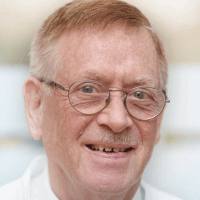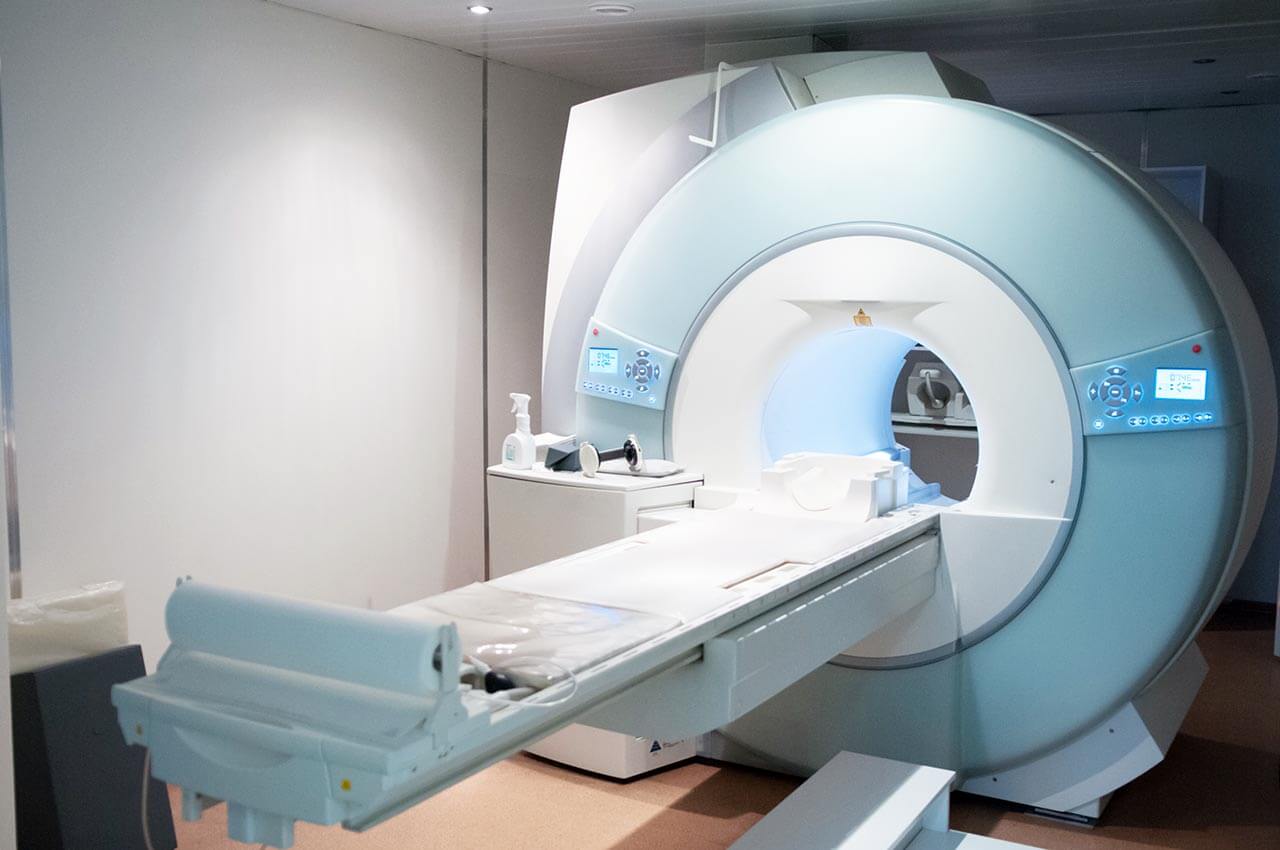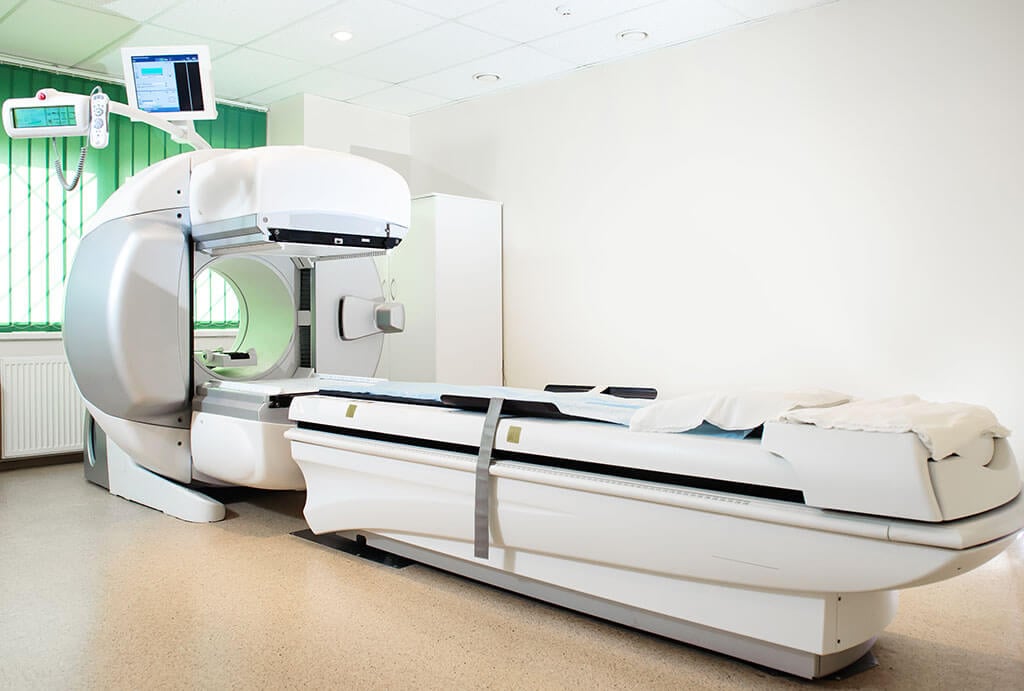
The program includes:
- Initial presentation in the clinic
- clinical history taking
- review of medical records
- physical examination
- ophthalmological examination:
- slit lamp examination
- pupil examination
- ocular motility examination
- ophthalmoscopy
- perimetry (visual field test)
- computer perimetry
- visometry (without correction and with correction)
- keratometry
- pachymetry
- refractometry (objective, subjective, cycloplegic)
- autorefractometry
- non-contact tonometry
- fluorescein angiography (if indicated clinically)
- optical coherence tomography OCT (if indicated clinically)
- gonioscopy
- photokeratoscopy
- nursing services
- services of chief physician and all leading experts
- explanation of individual treatment plan
Required documents
- Medical records
Service
You may also book:
 Price from:
Price from:
About the department
The Department of Ophthalmology at the DKD HELIOS Clinic Wiesbaden offers all the options of modern medicine for the diagnostics and treatment of diseases of the eye and its appendages. The doctors of the department have extensive clinical experience, and therefore they can restore the vision of patients even in difficult clinical cases. Conservative treatment with drugs and laser therapy is of particular interest to the specialists. Whenever required, the specialists correct vision with glasses and contact lenses. The doctors mostly deal with the treatment of cataracts, glaucoma, retinal diseases and strabismus. Particular attention is also paid to the prevention of ophthalmic diseases in order to prevent the development of visual impairments, in particular, in patients suffering from diabetes mellitus. The department's doctors devote a sufficient amount of time to personal communication with their patients, tell them in detail about the specifics of the pathology and possible treatment options. The department is headed by Dr. med. Helmut Rockert.
The key to a successful treatment outcome is high-quality and accurate diagnostics, and therefore the department's ophthalmologists have at their disposal high-tech diagnostic equipment that allows them to assess the structure of the ocular apparatus and its functions with maximum precision. To identify the causes of visual impairment and their nature, the specialists conduct optical coherence tomography, intraocular pressure measurement, visual field testing, pachymetry and other procedures. After receiving the diagnostic results, the doctors start developing a treatment regimen.
Cataract is one of the most common ophthalmic diseases that specialists encounter in their clinical practice every day. The disease is a partial or complete clouding of the lens of the eye located between the iris and the vitreous body. The lens is naturally transparent and acts as a natural lens that refracts light rays and transmits them to the retina. The clouded lens ceases to transmit light, and vision deteriorates up to its complete loss. Cataract can be treated using both conservative and surgical techniques. The first-line treatment is drug therapy. This involves the use of eye drops that help improve metabolic processes in the lens and tissues of the eye, which stops the process of cataract development. Nevertheless, in most cases, it is still not possible to avoid a laser intervention. During the procedure, the patient's clouded lens is replaced with an intraocular lens. The operation is performed using local anesthesia and takes no more than 30 minutes. As a rule, patients tolerate the surgical procedure very well.
The department often admits patients suffering from glaucoma. The pathology is characterized by increased intraocular pressure, which leads to optic nerve atrophy and destruction of retinal cells. Without timely treatment, glaucoma can cause permanent vision loss. At the very early stages of the disease, the department's ophthalmologists usually use only drug therapy. Such treatment is based on the use of modern antiglaucoma drugs, which help reduce the production of intraocular fluid and improve its outflow, which, in turn, contributes to the normalization of intraocular pressure. If drugs do not help to achieve the desired result, experts prefer laser interventions.
The department specializes in the diagnostics and treatment of the following eye diseases:
- Cataract
- Glaucoma
- Age-related macular degeneration
- Diabetic retinopathy
- Strabismus
- Myopia
- Amblyopia
- Presbyopia
- Retinal detachment
- Dry eye syndrome
- Infectious eye diseases
- Traumatic eye injuries
- Other diseases
The department's range of medical services includes:
- Diagnostics
- General ophthalmic examinations, including screening for cataracts, glaucoma, diabetic retinopathy and other conditions
- Optical coherence tomography
- Differential diagnostics for complex eye diseases
- Intraocular pressure measurement
- Visual field testing
- Special program for strabismus diagnostics
- Corneal thickness measurement (pachymetry)
- Treatment
- Drug therapy
- Laser therapy
- Selection of glasses and contact lenses for vision correction
- Other diagnostic and treatment options
Photo of the doctor: (c) DKD Helios Klinik Wiesbaden
About hospital
The DKD HELIOS Clinic Wiesbaden has long made a name for itself in the international medical arena by introducing an optimal model of medical care, combining the use of the most advanced medical technologies, the experience of highly qualified doctors and impeccable quality of patient care. The medical facility first opened its doors to patients in 1970. The world famous Mayo Clinic Rochester in America served as a model for the design of the medical complex. Since the foundation of the clinic, the main direction of its activities has been comprehensive diagnostics of complex diseases integrated into an interdisciplinary treatment concept. Today, an integral part of clinical practice is also preventive diagnostics aimed at the early detection of pathological changes in the human body. In recent years, the clinic has been actively developing the direction of surgery, in which it has significantly succeeded. The clinic enjoys a reputation as one of the best medical facilities in Europe in the field of endocrine and colorectal surgery, as well as in hernia repair surgery.
The clinic has 24 specialized departments. Each of them offers a team of experienced doctors, whose main value is the patient's health. The work of all doctors of the medical facility is based on a single credo – "Treat not a disease, but a patient". According to this belief, the course of treatment should be as individual as possible, taking into account the patient's physical characteristics, lifestyle, diet, emotional state, etc.
The clinic's bed capacity consists of 138 inpatient beds and 60 beds in a day hospital. Many diagnostic and therapeutic procedures are performed on an outpatient basis. The diagnostic and treatment rooms, like the operating rooms of the clinic, are equipped with state-of-the-art technology to ensure the observance of strict hygiene and safety standards. The advanced medical equipment allows detecting the slightest changes in the functioning of organs and their structure with impeccable accuracy, thanks to which doctors can diagnose complex pathologies at the very early stages. This greatly increases the chances of a successful cure.
The location of the clinic in Wiesbaden, known as one of the oldest thermal spas in Europe, is another pleasant advantage for the patients. Arriving at the clinic for a preventive diagnostic examination, one can improve his health in the healing thermal springs, as well as enjoy the sightseeing of historical monuments. The medical center is located in the immediate vicinity of the English style Spa Park founded in the distant 1852, so in the free time from medical procedures one can take a pleasant walk in the beautiful park.
Photo: (с) depositphotos
Accommodation in hospital
Patients rooms
The patients of the DKD HELIOS Clinic Wiesbaden live in comfortable single and double rooms. Each patient room has an ensuite bathroom with shower and toilet. The standard patient room furnishings include an automatically adjustable bed, a bedside table, a table and chairs, a TV and a telephone.
The clinic also offers enhanced comfort rooms with spacious bathrooms, which additionally include a large mirror, hairdryer, changeable towels and toiletries. These patient rooms also have a safe for storing valuables, a free minibar with soft drinks, a flat-screen TV with satellite channels and free Wi-Fi.
Meals and Menus
The patients of the clinic are offered tasty and balanced three meals a day: breakfast, lunch and dinner. If for some reason you do not eat all the foods, you will be offered an individual menu. Please inform the medical staff about your dietary preferences prior to treatment.
The clinic also has a cozy cafe where one can taste delicious snacks, salads, main courses and desserts. One can also enjoy aromatic coffee, delicious tea and soft drinks in the cafe.
Further details
Standard rooms include:
Religion
The religious services are available upon request.
Accompanying person
During the inpatient program, the accompanying person can live with the patient in a patient room or a hotel of his choice. Our managers will help you choose the most suitable option.
Hotel
During the outpatient program, the patient can stay at the hotel of his choice. Our managers will help you choose the most suitable option.



